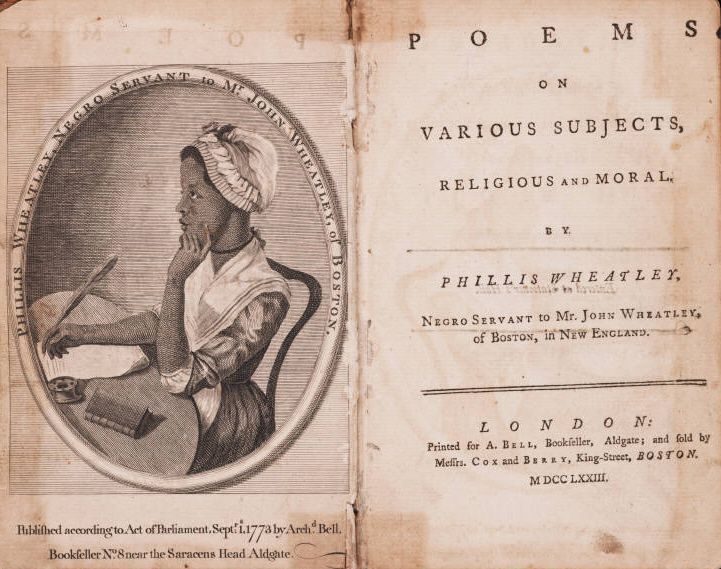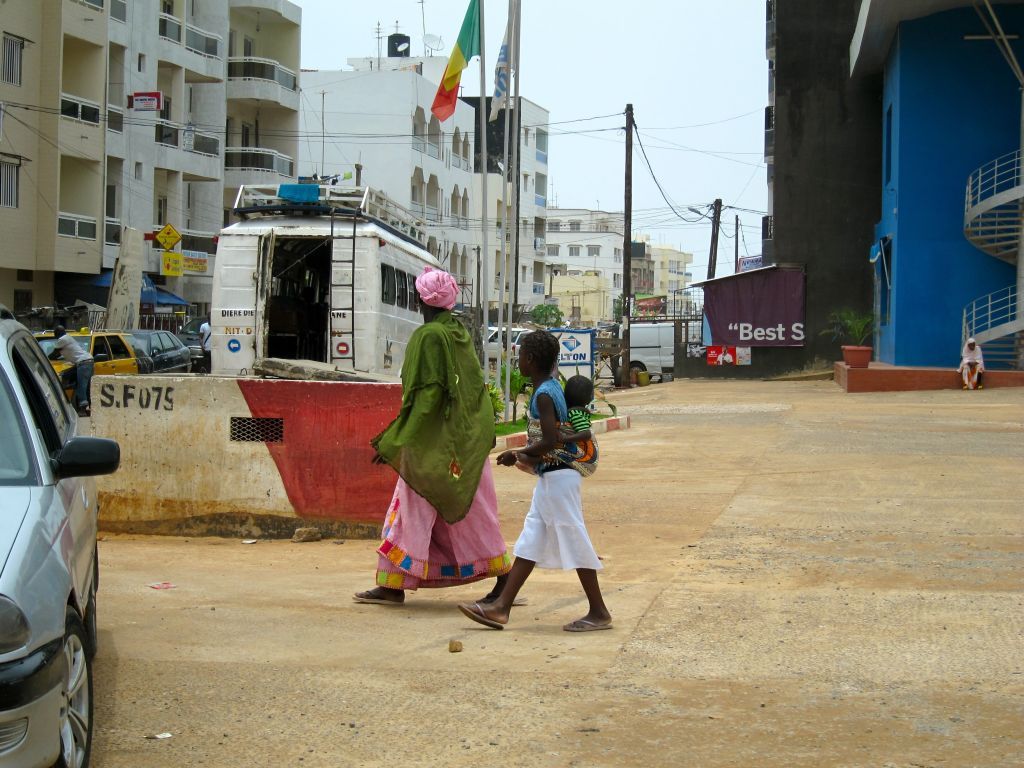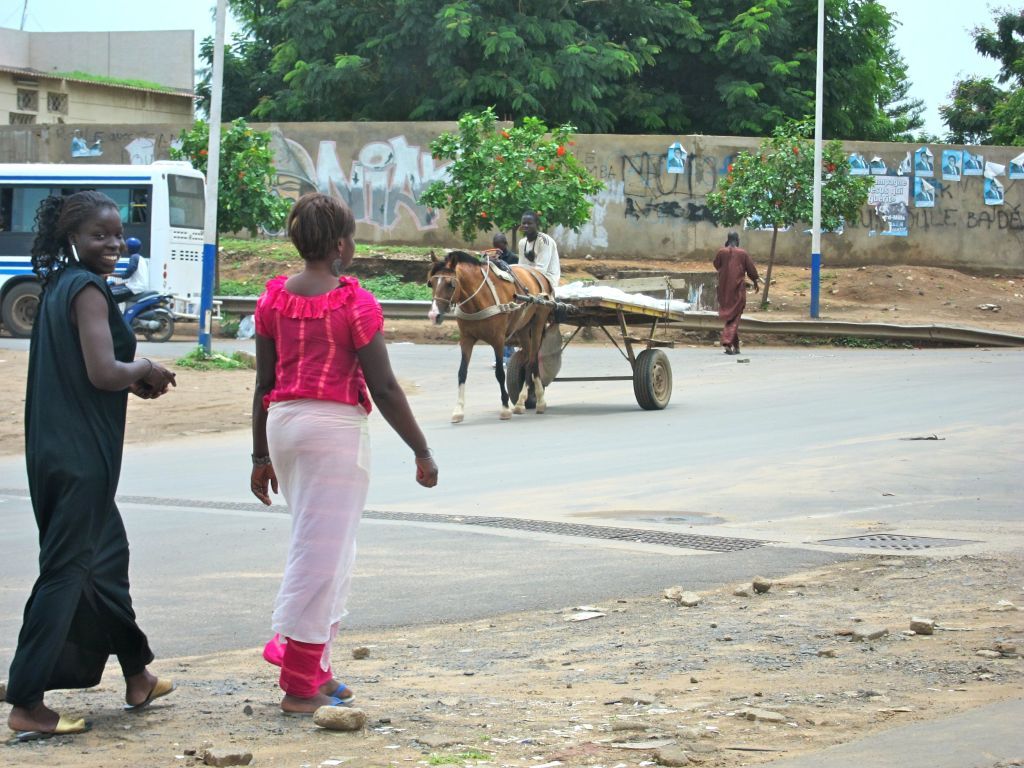Phillis Wheatley. Not just another nameless African slave purchased in the New World.
When I was in high school, I remember reading a poem that was entitled, “To His Excellency General Washington“. The author was a slave owned by an affluent yet progressive Boston family who “re-named” her for the slave ship Phillis that kidnapped her to the New World in 1761. She was quickly recognized for her sharpness, and not only did she learn to read in English, Greek and Latin- but she published poetry that made her the country’s first African American poet (George Washington even met with her after reading the aforementioned poem).
If I read back then that Phillis was a slave of Senegambian origins, I am sure that this fact was instantly deleted from my brain (because at the time I could not have hoped to pick out Senegal or The Gambia on a map). As I return to the poem today, I first think to myself, “Why on earth would someone think that a name like Phillis would suit a nice Senegalese woman? She looks more like a Fatou or Coumba!” But those were different times- way different and pretty messed up times at that. The second thought that struck me was that I am not at all surprised to learn of her origins.
Of course it was a Senegalese woman who showed such intellectual acuity; this country’s greatest resource is its people- and in my opinion it is the woman in particular who are the ones keeping all of the plates spinning.
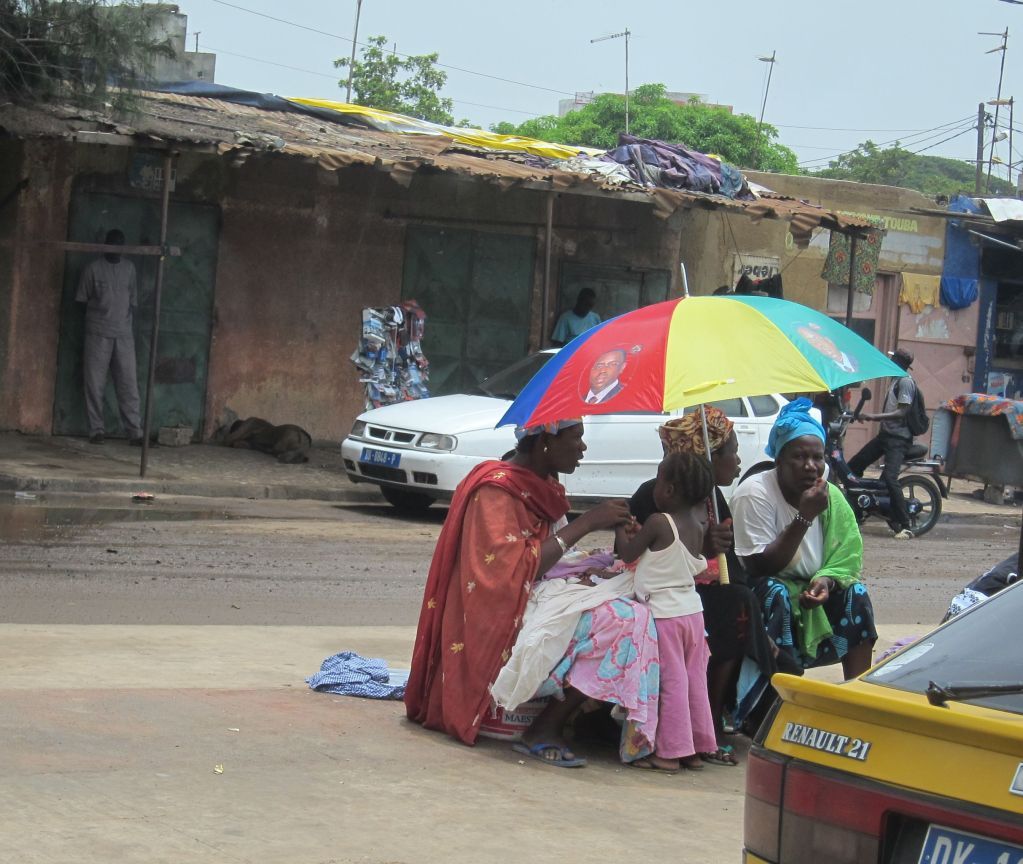
I took this photo yesterday because I liked the Macky Sall umbrella (Macky is Senegal’s current president). After reviewing this composition of people hanging out on a city median strip, I noticed that this showed a little girl and three older women. You don’t see women sitting around too often around here.
I know that I railed against Mama Africa just a few short blog entries ago, but I’ve got to step in front of myself now and let you all know that this sliver of Senegalese woman is not representative of the entire female population. That would simply be an unfair characterization of the mothers, daughters and wives (second, third or perhaps even fourth) who work their asses off for their families and community.
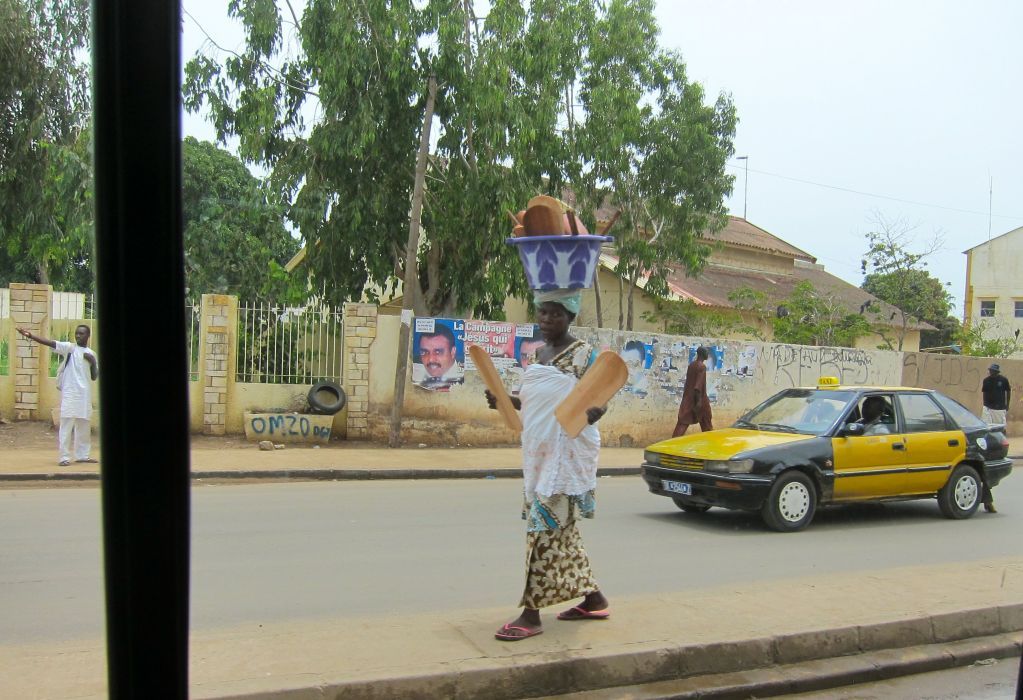
I’m not aiming to craft a blog entry that waves a huge feminist banner- but you know, maybe in a certain sense that is exactly what is happening. While I was enrolled at the university here in Dakar, our classes always boasted lively tangents that strayed from the topic- and this was almost exclusively due to the male students who loved to blah blah blah about inconsequential (yet kind of amusing) hypotheses. The class would run over the allotted time, and whenever this would happen I’d invariably glance to the women at my right and left, and we’d all give each other a knowing smile.
If you have to paint with broad strokes, the women of this country are more likely to get on with putting out a fire, while the men are more likely to discuter about how the fire got so big in the first place, and how big it will probably get as they stand there and watch it burn. I’m exaggerating of course- but I think you get the overall picture.
And I’m not the only person who thinks like this, either. There’s an awesome film by the renowned Senegalese filmmaker Ousmane Sembene called Moolaadé (you can get it on Netflix). It explores the controversial subject of female circumcision that took place in the villages of Senegal (a subject also discussed in Half the Sky). In the film, the traditional practice of cutting young girls was ended after a second wife in the village forbade her young daughter to go through the ritual. The mother takes on the village elders (both men and women) and challenges them to change the village’s thinking. A brave woman in action.
Quite often you see young children here who wordlessly take on the duty of caring for even younger children. You see this kind of premature responsibility not only with the girls- but also with the small boys who I have seen driving horse carts through the city.
I wasn’t kidding about the boys and horse carts.
I had been thinking about writing this blog entry for a few days- and while the subject has been marinating, I have keenly observed street commerce in search of fitting examples that would back up my “women do everything in this country” treatise. Unfortunately, the more I looked around, the more I saw that there are just as many men working here as there are women. People work incredibly hard in order to obtain incredibly little.
Keeping community in balance.
Still, I’m rather inclined to stick to my original devotion to the women of Senegal. Not only do they pull down backbreaking jobs that are yes equalled by the men- but they also carry out an additional duty that is in no way secondary to their day jobs. In my estimation, it is the women who form the heart of each very extended family network- and it is only through their dogged efforts that lifeblood is kept flowing to all components. And this is done without any expectation of recognition.
It takes an unnerving amount of ingenuity and dogged determination if you are going to succeed in the feeding, clothing and creation of a better future for your family. To wit: I think that’s why our much-maligned Mama Africa has developed such cutthroat airport table manners. Still, I firmly believe that Senegal has come as far as it has in local and global estimation because of women like her. Les femmes dans ce pays know how to get things done. And for that reason alone I offer up nothing but admiration.
